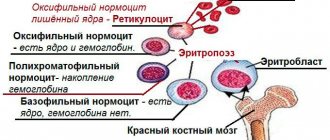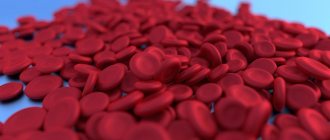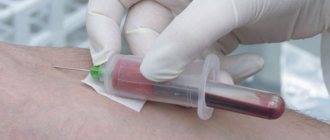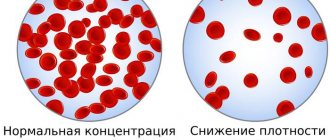Increased fatigue, drowsiness, irritability, hypertension, varicose veins and thrombosis can be a consequence not only of too high a pace of life or neglected health in general.
Very often, these pathological conditions are associated with the fact that the blood in the body is too thick. Because of this, it flows more slowly through the bloodstream, deposits build-ups of waste and cholesterol on the walls of blood vessels, and supplies the organs with oxygen and nutrients less well.
To prevent this thickening from happening, most often it is enough to reconsider your lifestyle, eliminate dehydration and use some folk remedies to thin the blood.
One such remedy is lemon. In this article we will talk about whether it is capable of thinning the blood or vice versa? We will also discuss other beneficial properties of this citrus for the blood, heart and blood vessels.
Contraindications
There are few cases of bans or at least restrictions on the use of lemon. Yes, and they are mainly regarded as preventive.
- Children under 3 years of age. In infancy, the child’s digestive system is only in its infancy, so it is advisable to abstain from this valuable product until the age of 3.
- Individual intolerance. It is considered to be the most hypoallergenic of citrus fruits. But cases of allergies can never be completely ruled out.
- Acute pancreatitis, gastritis and other diseases of the digestive tract, especially during exacerbation. With a gentle diet, it is better not to use lemon juice.
- Weak tooth enamel. Even with good teeth, it is advisable to rinse your mouth after contact with citric acid. If eating the fruit causes discomfort in the mouth, then you need to contact your dentist with a complaint about weak tooth enamel.
Top 10 anticoagulant fruits
Vitamins E, C, folic acid, and fiber are found to one degree or another in almost all fruits. But which of these elements contains the most? We suggest you familiarize yourself with the list of the most useful:
Bananas
It’s worth clarifying right away that bananas in large quantities can increase blood density due to the presence of carbohydrates (about 21 g per 100 g of pulp).
But at the same time, bananas are one of the largest natural sources of folic acid, which helps normalize blood thickness.
Nutritionists recommend including them in your diet daily, but eating no more than 1 fruit. Ideally, after active physical activity (for example, after a workout in the gym).
Kiwi
Kiwi is a source of ascorbic acid and vitamin E (the latter is about 1.5 mg per 100 g of pulp, which is even more than blackberries).
And the norm of vitamin E intake for a preschool child and an adult ranges from 10 to 14 mg per day.
So, kiwi can be eaten in almost unlimited quantities. There is not enough vitamin C in it to provoke an excess of ascorbic acid.
Pomelo
Pomelo also contains vitamin E, as well as a whole range of salts and minerals. The fruit consists of almost 90% water, simple electrolytes dissolved in it. They are easily digestible and quickly normalize the biochemical composition of the blood.
Pomelo is also a good source of digestible fiber. Its main purpose is to retain fluid in the large intestine, which helps soften stool and absorb more water from food.
Avocado
It contains vitamin E at the rate of 2 mg per 100 grams of avocado. That is, two medium fruits are enough to provide the body with all the necessary amount of vitamin for the day.
But we should not forget that tocopherol can be accumulated by the body and used “on demand”. Accordingly, it is allowed to consume more than 10 – 14 mg per day.
Grapefruit
Grapefruit is a source of small amounts of vitamin E (0.2 to 0.4 mg, depending on the variety).
But most importantly, it contains non-digestible fiber and vitamin C, which literally cleanse the blood of excess cholesterol, thereby normalizing its viscosity.
Apples
Apples contain a wide range of micronutrients. They contain tocopherol, folic acid, vitamin C, and fiber. Moreover, the fruits themselves are almost 80% water.
Apples also help increase hemoglobin levels
Accordingly, those who have it too high should carefully include apples in their diet
Other citrus fruits
They “act” in exactly the same way as grapefruit. That is, they contain vitamin E, fiber, and ascorbic acid.
You should only consume lemons with caution (due to the high concentration of vitamin C), as well as citrus fresh fruits. Nutritionists recommend avoiding concentrated juices altogether and diluting them with water at least in a ratio of 1 to 3
Pear
Folic acid in a pear is about 7 mcg, vitamin E - 0.3 mg per 100 grams of pulp. And at the same time, 83% of the pear consists of water and minerals dissolved in it.
Most of the folic acid is found in the peel, not the sweet pulp. So pears should be eaten without peeling.
A pineapple
Fresh pineapple contains about 25 mg of vitamin C per 100 grams of pulp.
In canned form - only 8 - 10 mg (depending on the time when the fruit was in the canned state). Moreover, its pulp consists of almost 90% liquid.
Pineapple also contains a small amount of fiber and antioxidants (they prevent the oxidation of blood cells, which to a certain extent also increases the likelihood of thrombosis).
Pineapple juice has a fairly high pH level, so you should not abuse it if you are prone to gastrointestinal diseases. It is especially “dangerous” for gastritis and peptic ulcers of the stomach and duodenum.
Figs
Figs contain tocopherol (0.11 mg), folic acid (8 mcg) and fiber, which helps retain fluid in the large intestine.
Figs also help remove waste and toxins, thereby comprehensively normalizing metabolism. But at the same time it gives a slight laxative effect - this “nuance” must be taken into account.
Also check out the infographic:
7 more healthy foods in your diet
In addition to citrus, you can reduce blood viscosity by regularly consuming a number of other products.
- Apple vinegar. It is a derivative product of the natural fermentation of apple juice. Its slightly acidic environment is as useful for normalizing blood consistency as lemon. Read more about the benefits of vinegar for blood vessels here.
- Linseed oil. It contains polyunsaturated fatty acids and normalizes lipid metabolism, which has a positive effect on normalizing blood thickness and clotting. Flaxseed oil also cleans blood vessels. But you need to use it daily, in courses, a tablespoon in the morning, preferably on an empty stomach.
- Cranberry. Cranberries also cleanse blood vessels and make the blood more fluid. It can be consumed in any form, without heat treatment: fresh, frozen, dried.
- Garlic. Garlic is extremely beneficial for blood vessels and blood. It is used fresh. You can add seasoning to any prepared dishes or make healing mixtures with lemon and honey.
- Honey. The sweet apiproduct is known for its properties beneficial to the circulatory system. The main thing in consuming honey is not to heat it above 60 degrees. A teaspoon on an empty stomach or a mixture of honey with lemon, garlic or horseradish will prevent thrombosis, varicose veins and stroke.
- Carrot-beet juice. It not only supplies the body with a large amount of minerals and vitamins, but also makes the blood vessels more flexible and the blood cleaner and more fluid.
- Figs Contains a concentrate of substances that improve the composition of the blood by saturating it with useful microelements, removing excess cholesterol and reducing its viscosity.
Check out the other products in the infographic:
Thick blood - what is it?
09.09.2021
When they say “thick blood,” it means that neglecting this problem is dangerous. What does thick blood ?
How does thick blood affect your health? Is this a consequence of genes or is blood influenced, for example, by lifestyle and diet ?
Is there a way to change blood ?
Although this term is more “household” and not medical, doctors constantly remind: thick blood must be thinned. What does that require?
Thick blood - what is it?
The problem with thick blood is that it flows more slowly through the circulatory system and delays the transport of nutrients and oxygen to the cells.
Additionally, when your blood is thicker, you become more prone to forming clots, which can block blood vessels in your heart .
brain or lungs . _ Like many things in the body, blood is important to maintain proper consistency. If there is an imbalance of proteins and
cells responsible for blood and clotting, the blood may become too thick.
Although human blood may appear homogeneous, it is made up of a combination of different cells, proteins, and clotting factors.
Reasons for increasing blood density:
• aging • sedentary lifestyle, • genetics , • heavy metals, • lack of essential fatty acids, • environmental toxins, including electromagnetic fields, • smoking, • bacteria, viruses and parasites.
When there are too many clotting factors, your red blood cells become trapped in a "fibrin network." The walls of the arteries are injured and prone to damage, and
the blood becomes sticky, leading to the formation of lumps and clots. These fibrin fibers make a major contribution to the increase in viscosity, the formation
plaques and eventually the closure of blood vessels ( thrombus ).
Thick blood - symptoms
The problem is often asymptomatic. However, in some cases, thick blood can cause blood clot- .
These symptoms depend on the cause of the disease and its location and may include:
• blurred vision , • dizziness , • headaches, • easy bruising, • high blood pressure, • lack of energy, fatigue, • difficulty concentrating, • shortness of breath, • anemia, when there is a low level of normal red blood cells in the blood .
What should you do?
A certain diet and special drinking regimen will help make the blood more fluid. In addition to clean water, doctors advise including greens in your diet.
or herbal tea (if there are no contraindications to the use of herbal drinks), do not forget about natural juices from vegetables and fruits.
to thin the blood . Thanks to special compounds (in particular bioflavonoids), this product is considered
one of the best for the cardiovascular system.
What about drinking 10-12 glasses of water a day as a blood ? That's a lot of water, although it can certainly reduce blood .
Research shows that those who drink 5 or more glasses of water per day are less likely to die from illness compared to those who drink
2 or less glasses of water per day.
Eat and drink blood such as pomegranate tea, ginger, turmeric, cumin, garlic, onion, green tea, cold water fish such as
wild salmon, tofu and walnuts.
Exercise: Thick blood causes blood vessels to become stiffer, less flexible, and they often calcify with age.
One key way to keep your blood is through exercise.
Medicines for blood thinners and excessive platelet buildup
Treatment of hypercoagulation and its symptom - thick blood - consists of the use of thinning drugs, that is, drugs that suppress aggregation
platelets. How to thin the blood ? The most commonly used drugs for hypercoagulability are heparin and acenocoumarol.
Heparin is blood drug that acts very quickly and is most often used in emergencies, in exceptional situations,
such as a long flight or surgery .
On the other hand, acenocoumarol can be used continuously. However, long-term use of this drug requires constant monitoring of INR in the blood .
Published in Articles without category Premium Clinic
Can it cause harm, are there any side effects?
Of course, lemon is not always worth taking for treatment. There are some contraindications to taking this healthy fruit:
- allergic reactions;
- Lemon is contraindicated for children under 3 years of age, as it is a citrus fruit;
- with stomach or gastrointestinal ulcers;
- serious liver diseases;
- nursing women;
- gastritis or pancreatitis.
A lot has been said about the benefits of this wonderful fruit. But it’s worth talking about the harm it can cause to the body. First of all, you should know that when taking lemon, it is always recommended to dilute it with water. This is done in order not to spoil the tooth enamel and not to disturb the acidity. After taking it, you should also rinse your mouth.
If you put lemon slices in tea, you need to peel them from the seeds, since the seeds neutralize all the beneficial properties of this fruit.
But you shouldn’t completely exclude lemon from your diet, because it can only cause harm when consumed in very large, excessive quantities. And if you take into account all the individual characteristics of your body, then drinking lemon in small quantities is not prohibited. Of course, if you decide to treat with lemon, you should still consult your doctor first.
Lemon with ginger and cinnamon
Can lemon really be a blood thinner? Yes. Especially when used daily. It is clear that the fruit itself is highly acidic and not everyone can eat it just like that. Therefore, it is recommended to add lemon to black or green tea, coffee, or better yet, to a glass of boiled but warm water. Lemon is often used as an additional ingredient in cooking. Lemon juice used to be used to wash dishes and scrub problem stains before the invention of detergents. And now they sometimes use it.
You can make lemon jam and eat it like that, add it to tea, water daily. Buy a few whole lemons, then rinse them and put them through a meat grinder. Remove the seeds, add sugar, stir thoroughly. Place the resulting mixture in a jar. Ready. Of course, this mixture contains sugar and is sweet, but nothing extra. Such jam can be stored for a long time, added to tea or coffee if desired, or diluted in water. Eat it this way, with spoons. The mixture turns out very tasty.
Another option is to prepare a special drink
- Ginger root;
- A pinch of cinnamon;
- Whole lemon;
- Honey - a small spoon;
- A spoon of green tea (in leaves);
- 500 ml of boiled, purified water.
Preparation:
First, cut the prepared piece of ginger root into small slices. Take a large thermos, where the drink will then be stored and brewed, pour pieces of ginger into it. Add green tea leaves, cinnamon to it and pour boiling water over it. You need to insist for about 1.5-2 hours, and the thermos will retain its hot temperature for a long time.
Carefully filter the finished drink and pour it again into another, clean thermos. Add a couple of spoons of honey and lemon juice obtained from a whole lemon. That's it, you can drink it all day. The course of treatment with this drink lasts about a month. Excellent for blood thickening. Rich in taste, healthy and hot.
Main causes of blood viscosity
Reduced fluid intake or poor absorption of water by the body. It’s not for nothing that doctors believe that you need to drink at least a liter of water every day, and the individual indicator is calculated as: 30 grams of liquid for every kilogram of weight. Daily norm. If the problem is in digestibility, then you need to take a closer look at what exactly the person drinks. For example, he indulges in soda, suppressing thirst, or pours regular tap water. Both chlorine and soda must undergo internal processing before the body receives a supply of fluid. This wastes extra energy. True, most doctors do not see this as the main cause of viscosity in the blood. Sometimes the blood thickens due to disturbances in the functioning of the spleen, or more precisely, if it suddenly begins to work hard, then this slowly worsens the composition of the blood. The accumulation of waste also negatively affects the blood. Dehydration. Prolonged diarrhea, why infants suffering from diarrhea are advised to drink separately. After all, liquid feces contains a lot of liquid, which disappears extremely quickly. When the body is under heavy stress. Increased sugar intake daily. Those who want to have healthy blood need to control how much sweets they eat and drink
Particular care should be taken with foods containing simple carbohydrates. Sometimes lovers of unhealthy, junk food, which contain very few vitamins and various minerals, suffer from thick blood.
When a patient eats poorly, eats inconsistently, and cannot establish a daily routine, problems with organs and systems will likely arise. The first in such a queue are, of course, the liver, stomach and intestines. When there are not enough useful salts in the body. Exposure to radiation.
Of course, only a doctor can determine the exact cause.
It is important that if you have constant blood thickening, this is an alarming sign. Without self-medicating, you should immediately consult a doctor
First, he will study the tests, determine the cause of the thickening, and then prescribe treatment.
Using regular liquefaction products is a one-time use, nothing more.
Why is blood thickening dangerous for human health?
Many people do not even think that too thick blood can lead to certain health problems, but most often the development of this disease occurs because the patient drinks too little fluid per day. Below we will describe the main problems that can arise when there is a lack of fluid in the blood.
To begin with, the patient develops varicose veins, and hypertension also occurs; in this case, the patient’s high blood pressure is stable and is almost not reduced by special medications. It is quite possible to develop thrombosis and thrombophlebitis, thick blood leads to the development of coronary heart disease and hemorrhagic stroke, and it is not uncommon for patients to develop atherosclerosis, which is very life-threatening.
The most serious complication may be myocardial infarction, which can occur not only in older people, but also in middle-aged patients. Most of these diseases can ultimately lead to death, even with proper treatment, and it is also not uncommon for patients to remain disabled after suffering from illnesses.










